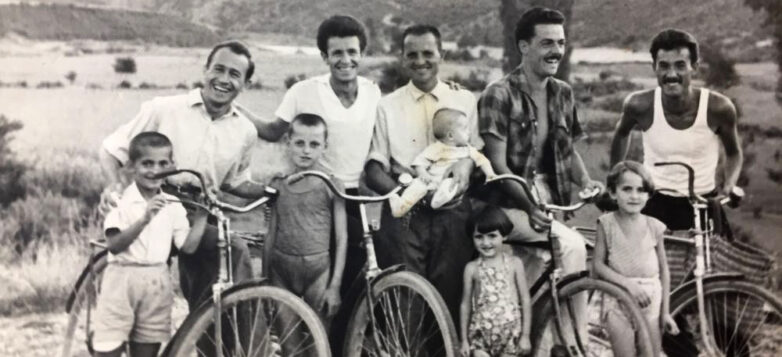… o zamanın bugünden farklı olan her belgesi için, nüfus cüzdanı, pasaport, ehliyet, farklı belgeler için vesikalık fotoğraf çektirmeniz gerekiyordu. O sırada yetkililer fotoğraf isterdi ve fotoğraf çekebilecek olanlar sadece fotoğrafçılardı. Bir fotoğrafçının o dönemde yaptığı işin en önemli yönü, belgeler için fotoğraflar ve hatıra resimleriydi. Hatıra fotoğrafları; aile fotoğrafları, çift fotoğrafları, düğün için, düğün öncesi, düğünden sonra {parmaklarıyla sayar}, düğün sırasındaki fotoğraflar, gelinlikli fotoğraflar gibi şeyler olabilir. Çoğu zaman hatıra fotoğrafları, anı ölümsüzleştirmek için çekilirler. Bu yüzden insanlar bir anı hatırlamak için fotoğraf çektirmek istediler ve bu anlar çok fazla değildi, video kameralar neredeyse yoktu ve anıları saklamanın, anılar yaratmanın tek aracı fotoğraflardı.
Veton Nurkollari, 1962 yılında Prizren’de doğdu. 2002 yılında kurucu ortağı olduğu Kosova’nın en önemli belgesel ve kısa film festivali olan DokuFest’in Sanat Yönetmeni’dir. Aynı zamanda festivalin yanı sıra her yıl düzenlenen belgesel fotoğraf sergisi DokuPhoto’nun küratörlerinden biridir. Bay Nurkollari, film festivallerinde düzenli olarak film programları ve jüriler küratörlüğü yapıyor aynı zamanda Kosovalı genç belgesel film yapımcılarına danışmanlık yapıyor. Nurkollari Bey şu anda ailesiyle birlikte Prizren’de çalışmakta ve yaşamaktadır.
